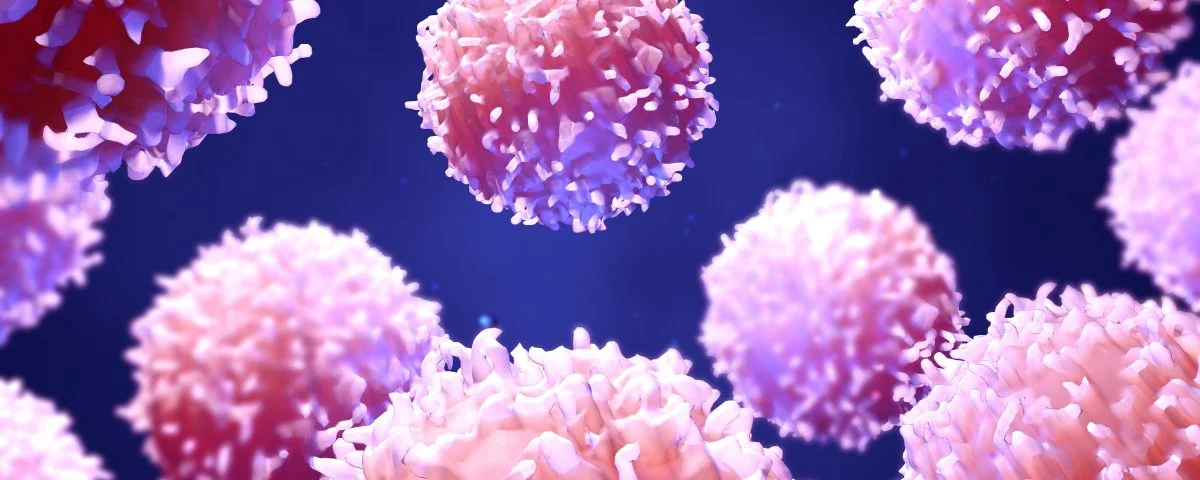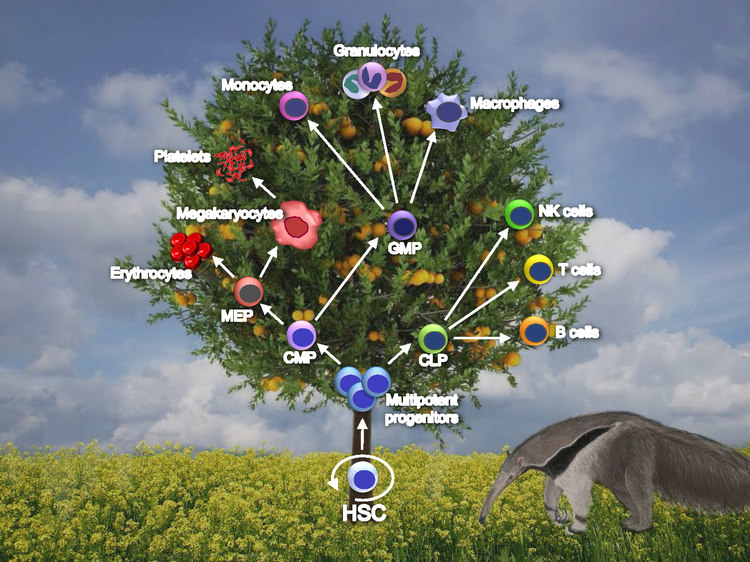
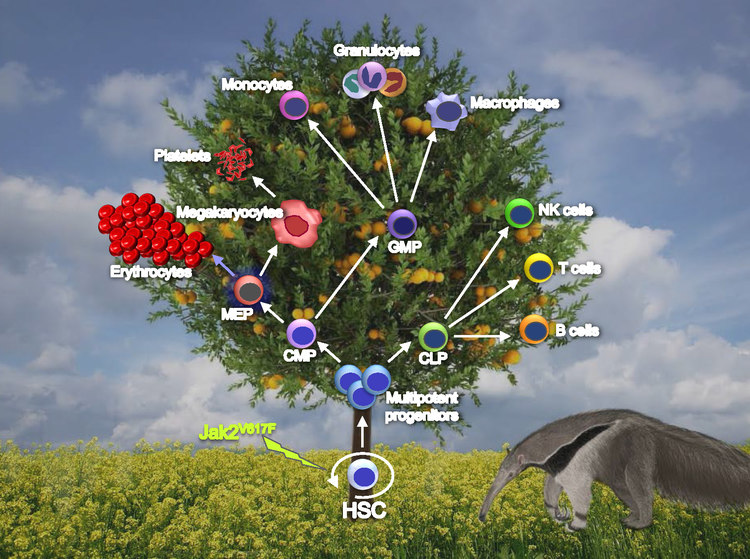
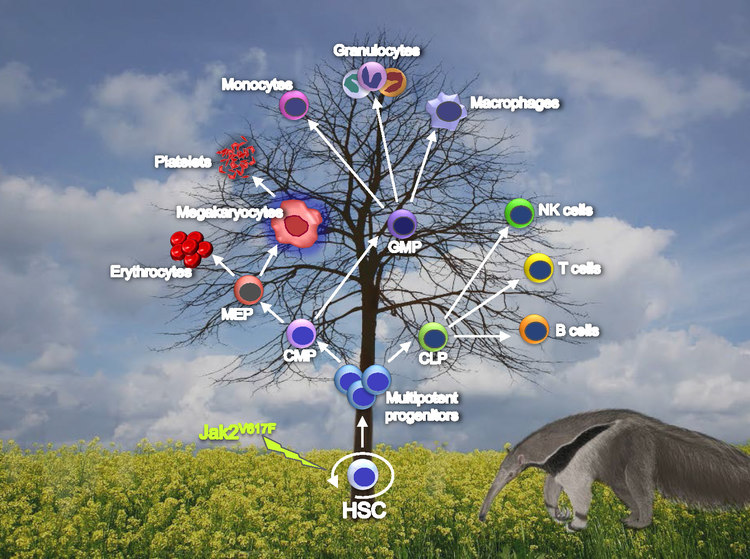
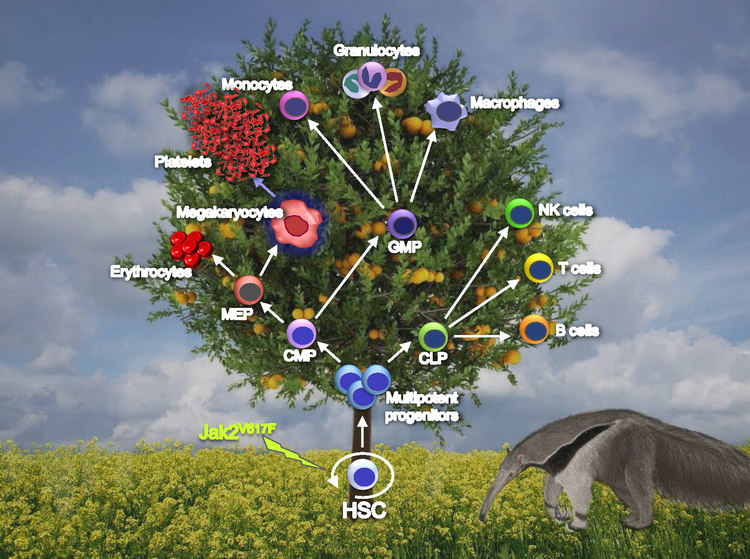
Myeloproliferative neoplasms (MPN) are a collection of blood cancers which include:
Polycythemia Vera (PV) - overproduction of red blood cells
Essential Thrombocythemia (ET) — Overproduction of platelets
Myelofibrosis (MF) - Accumulation of fibers and scar tissue that hinders production of blood cells within the bone marrow
MPN arises when a blood stem cell acquires a mutation such as JAK2V617F which makes the blood stem cell think it is always receiving growth hormones instructing it to make more blood cells. MPN can cause problems like an increased tendency to form blood clots, symptoms such as itching, headache, and fatigue. Also, MPN can sometimes progress to a leukemia.
MPN Treatment and Research
The management of MPN focuses on reducing blood clotting risk and managing symptoms. There is no cure for MPN other than a bone marrow transplant. New therapies are currently being developed for MPN but we still have a long way to go.
MPN can sometimes run in families. The mutations in MPN such as JAK2V617F are not inherited, but acquired during a person’s lifetime. Multiple people within the same family can all acquire the exact same mutation. By understanding what makes some families susceptible to getting MPN will help us understand what causes MPN and potentially develop ways to prevent it.
How are ‘We’ Furthering Research Today?
MPN patients and their families are critical to learn what causes MPN. With this in mind, if you are a patient with MPN please consider participating in research. Even if you are not a patient, but a family member, your cooperation in our familial MPN project would greatly help in understanding how this disease runs in families and potentially what targets we can use to identify individuals that may have a higher risk towards developing MPN.
Get Involved Today!
Enroll in our familial study of MPN (Both Patients and Family)
